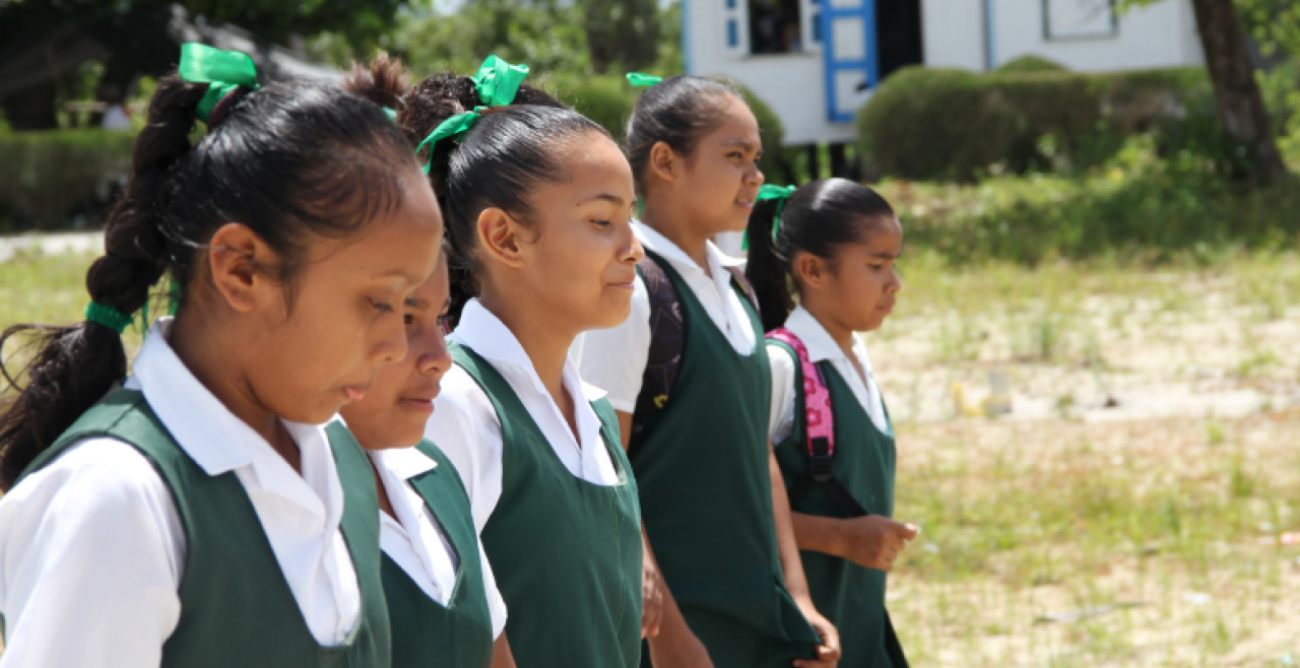Research for change: Informing legislative reform to tackle domestic violence in Guyana

New Family Violence Bill drafted.
Research and analysis conducted by UNICEF under the Spotlight Initiative, in partnership with state and non-state actors, highlighted the need for changes to Guyana's legislation on domestic violence. This contributed to the drafting of a new Family Violence Bill. The Bill began review and debate by Guyana’s National Parliament in 2022, which continued into 2023, alongside proposed amendments on sexual offences.
The Bill addresses weaknesses in the Domestic Violence Act of 1996 and introduces innovative new provisions by extending protections to cohabitating couples who are not legally married, as well as to same-sex couples in the lesbian, gay, bisexual, transgender, questioning and intersex (LGBTQI+) community.
In Guyana, one in five women have experienced non-partner sexual abuse in their lifetime, a trend fuelled by harmful social norms that include a belief in men’s entitlement to a woman’s body and a widespread male culture of ‘machismo’ and an unsafe environment for women. Indeed, 13 per cent of women in Guyana report experiencing such abuse before the age of 18.
Young Guyanese women over the age of 15 face a higher risk of attempted rape, unwanted sexual touching and sexual harassment than any other age group.
Enacted in 1996, the Domestic Violence Act is a primary tool in the fight to prevent and respond to VAWG in Guyana, along with the Sexual Offences Act of 2010. Although VAWG is an ever-evolving problem, the Domestic Violence Act has never been fully updated as a means of addressing the range of prevention and response measures for the protection of families (such as extending beyond intimate partners who are victims/survivors of violence). Neither does it complement the reforms accelerated by other complementary legislation, such as the Sexual Offences Act of 2010, which is gender-neutral and introduced new offences.
While the country has experienced – and is still experiencing – high levels of violence, evidence shows a gradual willingness to ‘break the silence’ and report VAWG. Consultations guiding UNICEF’s work on the Spotlight Initiative in Guyana highlighted a need to update the Domestic Violence Act of 1996. However, evidence was lacking on how the Act should be updated, what the issues in the current legislation were, where the gaps were, and how it interacted with other Guyanese legislation.
In partnership with the Government of Guyana, UNICEF launched a legal research initiative, which revealed significant shortfalls in reporting, investigation and the effectiveness of orders, and a lack of effective survivor support services, among others. To address these shortfalls, over 40 proposed changes were discussed with the Ministry of Human Services and Social Security.
"Importantly, the government recognizes it [domestic violence] as a serious problem, and we continue to remain committed to stamping it out in every form and fashion that exists in our society,” said Attorney General Anil Nandlall.
The changes suggested the use of more robust and comprehensive definitions of economic, emotional and psychological violence, updated penalties for breaches of protection orders, and the creation of perpetrator intervention programmes and counselling as remedies under the law.
in response, the Government of Guyana adopted an entirely new Family Violence Bill addressing key weaknesses in the prior Domestic Violence Act, for example affording protection to unmarried, cohabiting couples as well as to same-sex couples. The Bill also signifies a policy shift away from stereotypes and cultural bias against the LGBTQI+ community.
Outside the new Family Violence Bill, the research conducted by UNICEF helped to increase collaboration with the national judiciary on services such as specialized hearing rooms for survivors of domestic violence, to limit re-traumatization. The hearing rooms contribute to the quick and confidential hearing of cases. They also address a barrier to reporting VAWG – inadequate support structures that do not ensure the safety of victims who have reported abuse.
“There must be facilities in place for victims or survivors to report and give their evidence and to be assured of an environment that does not create injustice when they seek justice,” said Justice Yonette Cummings-Edwards.
At their inception, around 800 people benefited from the hearing rooms, increasing to about 2,000 at the end of 2022. UNICEF in Guyana, under the Spotlight Initiative, supported broad stakeholder consultations, advocated for the new Family Violence Bill with other government stakeholders, and promoted the Bill with local civil society organizations.
Originally published in 'Together for Change: Documenting the fight to end violence against women and girls in the Pacific, the Caribbean and Central Asia'.


